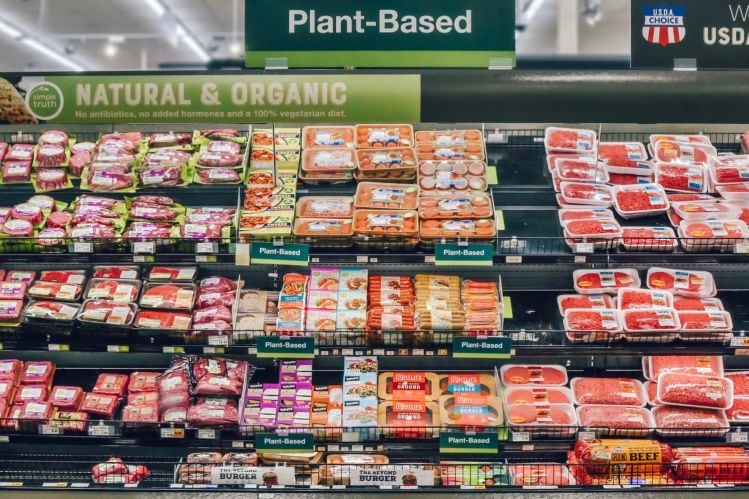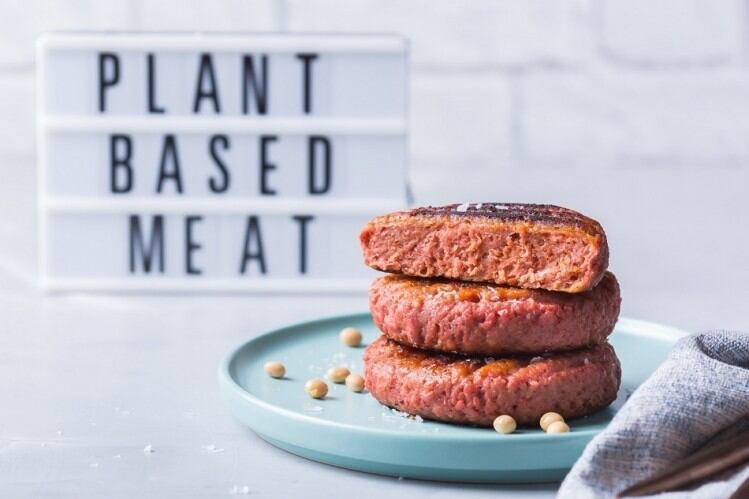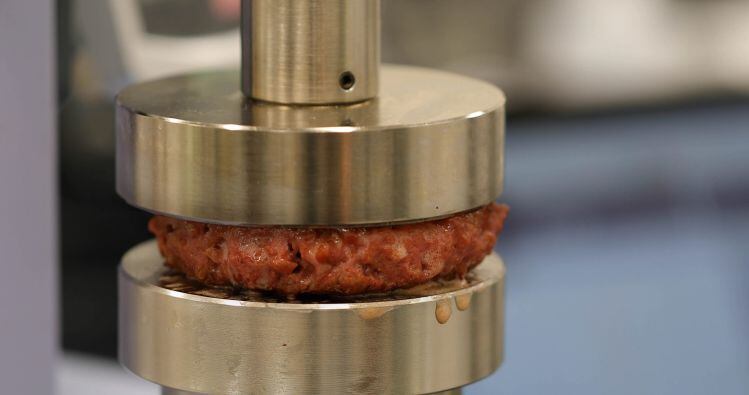Used by high-profile brands including Beyond Meat and Impossible Foods, methylcellulose is created from cellulose (a natural substance found in plant cells) through heating with a caustic (alkali) solution and treatment with methyl chloride.
The end product is a white odorless powder with attractive gelling and emulsifying capabilities that is soluble in cold water, forms a gel at higher temperatures and holds plant-based meat products such as burgers together as they cook, as well as boosting succulence and juiciness. The gel is ‘thermo-reversible,’ meaning that when it cools down, it returns to a viscous solution.
While none of the major retailers or foodservice brands - including Whole Foods and Panera - feature methylcellulose on their ‘unacceptable ingredients’ lists, it's not something consumers have in their kitchen cupboards at home and is frequently cited as evidence of the 'highly processed' nature of some plant-based meat products and was recently referenced in a lawsuit against Beyond Meat challenging the 'natural' credentials of its burgers.
Replacing methylcellulose
Many firms are working on more label-friendly alternatives, including Noblegen – which says beta glucan produced by a single-celled microbe called euglena has the potential to replace methylcellulose; Fiberstar - which claims upcycled citrus fiber could replace methylcellulose in combination with agar, native starch, and psyllium; and Shiru - a startup producing proteins via microbial fermentation.
“If you ask any consumer what methylcellulose is, chances are they won’t recognize it, and it’s even more likely that they won’t be comfortable consuming it,” said Merit Functional Foods co-CEO Ryan Bracken.
“But despite this, methylcellulose is a part of the ingredient labels for many of the meat alternatives on the market today due to its unique functionality, and formulators are struggling to find a suitable clean label solution to replace it.”
‘Our approach is to use transglutaminase in conjunction with pea protein that has gone through our proprietary membrane filtration process’
So how has Merit cracked the code? Jeff Casper, director of R&D, told FoodNavigator-USA: “Our approach is to use transglutaminase in conjunction with pea protein that has gone through our proprietary membrane filtration process.
“Many meat alternatives will utilize an emulsion to help bind texturized proteins, and we have found that our Peazazz pea protein, when used with transglutaminase in this type of system, creates a strong, elastic gel that can mimic the texture of products containing methylcellulose when cooked.
“Transglutaminase creates cross-links between glutamine residues and lysine residues in proteins, and while this enzyme is not new, we have seen some pretty remarkable gelation with pea proteins that have been produced using Merit’s membrane filtration.”
‘We knew we had something special’
While combining transglutaminase with various plant proteins has been tried before, he acknowledged, “When we tested transglutaminase with our Peazazz and Peazazz C pea proteins and compared the results against across a range of proteins from various botanical sources and also against other commercial pea proteins, we knew we had something special.
“The gels formed using Peazazz were over four times firmer than the next best performing competitive pea protein we evaluated, and we evaluated several kinds produced using different processes. Not only were they weaker, but they were also very coarse with a grainy texture. Peazazz produced smooth gels with no graininess.”
He added: “This exceptional gel strength, elasticity, and was noted by our applications team, who then compared against fava, mung, and potato, all of which produced weak, coarse gels with transglutaminase. Our protein is produced using membrane filtration, which changes the protein composition and removes impurities that can impact taste and functionality, including how it behaves in gel networks catalyzed using transglutaminase.”
’A remarkable material…’ Why is methylcellulose so ubiquitous in plant-based meat?

“Methylcellulose is a modified cellulose that provides two key functions,” explains Jeff Casper, director of R&D at Merit Functional Foods.
“The first function is as binder, or glue, for adhering particles prior to forming and cooking of patties, meatball alts, links, or other types of products. Secondly, methylcellulose will gel at hot temperatures and provide hot structure, a meat-like bite, and durability and stability when cooking and eating. When methylcellulose gels, it also expresses some moisture giving the product a realistic mouthfeel.
“Lastly, one of the other difficulties in replacing methylcellulose is that it is easy to color and is completely neutral in flavor. So, it is a remarkable material, but not one some consumers want to consume."
‘We are getting feedback remarking on how firm and springy the products are’
So would the enzyme be considered a processing aid or would it have to be listed on the label?
“In the US, transglutaminase can be labeled as ‘enzyme,’” said Casper. “Depending on the specific process and applications, and if inactivated, it may be a considered a processing aid [which would mean it wouldn’t need labeling].”
Asked what kind of feedback Merit has had in the marketplace, he added: “I do think it’s a significant step towards cleaner label plant-based meat alternatives.
“Our applications team has utilized the exceptional gelling performance of our Peazazz and Peazazz C to develop some terrific methylcellulose free concepts, including plant-based burgers and sausages where the gelled emulsion binds particles, and also plant-based hot dogs and a pea-based tofu where the gelled emulsion forms the entire structure. We are sampling these concepts to customers and getting feedback remarking on how firm and springy the products are.”
Drop-in replacement?
But is this a drop-in replacement for methylcellulose, or rather something that could replace the secondary proteins used in many plant-based meat formulations, and also serve as a methylcellulose replacement?
“Both formulation and process will need to be adjusted to accommodate this approach,” said Casper.
“Because you are creating a protein gel, you get the dual benefit of the structuring agent being your protein source, much like in traditional meats.
“But the use level of the protein will be higher than that of methylcellulose, however the use level of the protein may not be any higher than what would be used in these types of formulas anyway. For products like a pea-based tofu, hot dog, or binding system, the foundation formula is simply water, pea protein, oil, and enzyme. Most of these ingredients are already on the label, so it has the potential of being very positive for the ingredient declaration.”




